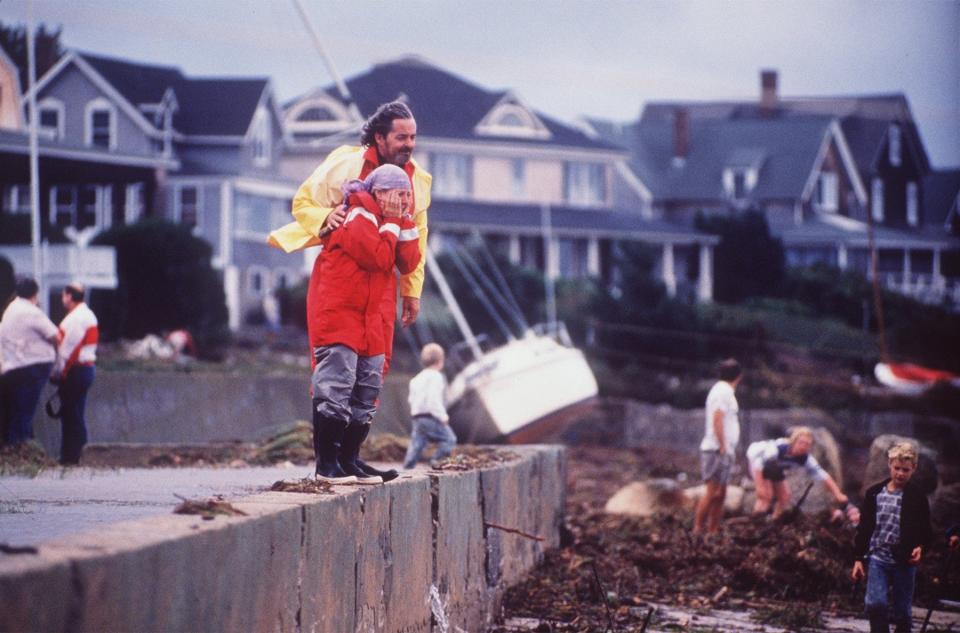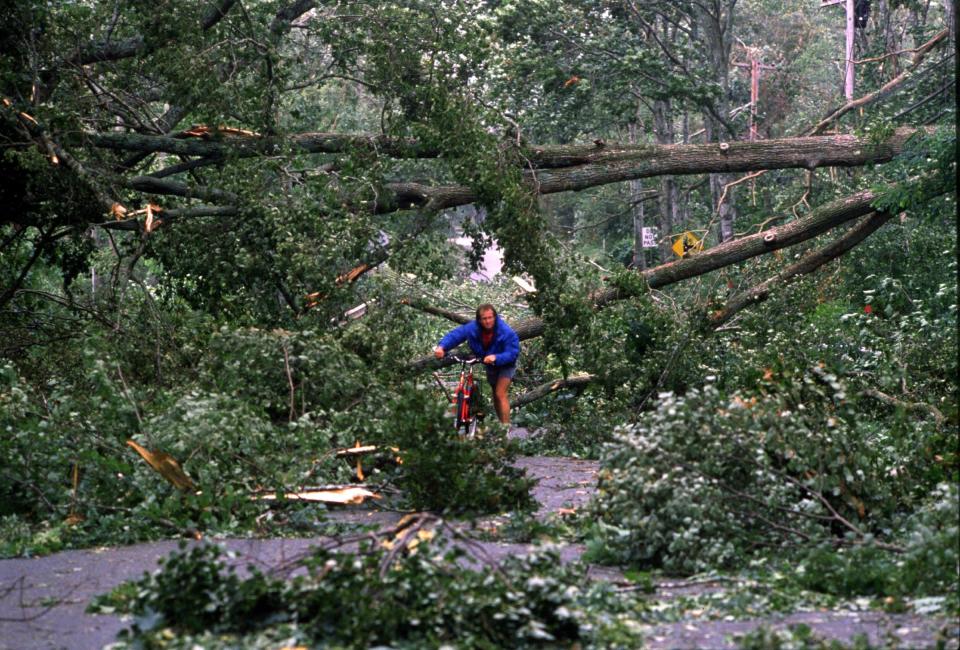'We are well overdue': Are you ready for the next hurricane to hit Cape Cod?
This is the time of year when Cape Cod weather-watchers begin gazing south with trepidation. That's where hurricanes get cooking and sometimes they make a beeline for our peninsula, packing a rotten punch of wind, rain, coastal flooding and erosion. Throw in widespread power outages and you've got a lousy party that no one wants to attend.
One thing is sure about hurricanes and tropical storms: you can't stop 'em. But there are things you can do to get ready for the big blow. Gov. Charlie Baker has proclaimed July 10-16 as Hurricane Preparedness Week, and it's a fine time to fine-tune emergency plans and emergency kits.

While the Atlantic hurricane season runs from June 1 to Nov. 30, meteorologist Bryce Williams at the National Weather Service's Norton office said hurricanes are more likely to smack Cape Cod from August to early September. But you can't rule out dangerous tropical activity during the entirety of hurricane season.
Last hurricane struck Cape 30 years ago
Williams said Hurricane Bob in 1991 was the last hurricane to make landfall in the area.
More: Does the recent spate of Cape Cod tornadoes have a climate change connection?
"We are well overdue," said Williams, citing return interval data for hurricanes hitting the Cape Cod region.
Based on a century of data analyzed by the National Hurricane Center, a hurricane can be expected to reach the Cape every 13-16 years. A major hurricane (Category 3, 4 or 5) can be expected to come our way every 58 to 62 years.
Because of its out to sea location, Cape Cod has a shorter hurricane return interval than Boston and the North Shore, which can expect a hurricane about every 30 years.
"That's because you stick out and you're kind of asking for it," Williams said.
With the National Oceanic and Atmospheric Administration predicting an above-normal 2022 Atlantic Hurricane Season, Cape Codders should consider steps they can take now to be ready for powerful storms.

According to public safety information from the state, building an emergency kit is a really good idea. Here are suggested items:
Your emergency kit should include:
Water: Bottled water (one gallon per person/per day for at least three days), water purification tablets.
Food: At least a three-day supply of non-perishable foods that do not need cooking (ready-to-eat canned meats, fruits, vegetables, or juices, protein or granola bars, cereal, peanut butter, dried fruit, nuts, crackers, baby food, comfort foods).
Tools and Supplies: Manual can opener, radio (battery-powered or hand crank), flashlight or lantern, extra batteries, cell phone with charger, wrench, pliers, and other basic tools.
Personal Items: Prescription medications (two-week supply), personal hygiene items, eyeglasses, contact lenses, dentures, extra batteries or supplies for medical equipment, change of clothes, sturdy shoes.
Pets: Collar, leash, harness, crate, food, bowls, current photo, license and medical information.
Documents: Insurance policies, bank account records, identification cards (IDs), medical information, and other copies of important documents.
Money: Extra cash and traveler’s checks (ATMs may not work during a power outage)
Other Items: First-aid kit, emergency whistle, waterproof matches/lighter, local area maps, diapers, wipes, formula, and baby food and supplies (if needed).
Also consider adding:
A watch or clock.
Household chlorine bleach, which can serve as an emergency disinfectant of drinking water.
Camp stove or grill with fuel or canned heat, neither of which should be used indoors.
Disposable plates, cups and utensils.
Duct tape, plastic sheeting or tarp.
Seasonal items to protect against the elements.
Books, games, puzzles and other comfort items.
Sleeping bags or blankets.
Download the Cape Cod Times app ahead of the storm
Additional items during the COVID-19 pandemic:
During COVID-19, you should add additional items to your emergency kit which you might need to use either at home or if you need to evacuate. These items will help keep you and your family safe during an emergency that may occurs during the COVID-19 pandemic.
Include face coverings and/or masks to prevent the spread of germs.
Include disinfectants, hand sanitizer and other cleaning supplies that you may need in an emergency.
The state also urges folks to have several ways of staying informed during storms. For Cape Codders, the Barnstable County Emergency Planning Committee website offers a lot of information and resources, including a Hurricane Preparedness page and a Homeowner’s Handbook to Prepare for Coastal Hazards.
More resources are available at the Massachusetts Emergency Management Agency's Hurricane Safety Tips web page.
According to a state hurricane preparedness press release, "other ways to receive alerts and information include the Emergency Alert System, Wireless Emergency Alerts, NOAA Weather Radio, and social and traditional news media. The Commonwealth’s 2-1-1 hotline is available 24x7 for non-emergency assistance and is available with translation in 150+ languages and can be accessed via video relay services. Find more info at: https://www.mass.gov/info-details/be-informed-and-receive-emergency-alerts."
More: Curious Cape Cod: Storm forces lone writer to flush with pond water
This article originally appeared on Cape Cod Times: How to be ready for hurricane season on Cape Cod

